Importance of Post-Meeting Surveys (With 20+ Samples)
Check out the following samples of post-meeting surveys for your personal or business needs.
-
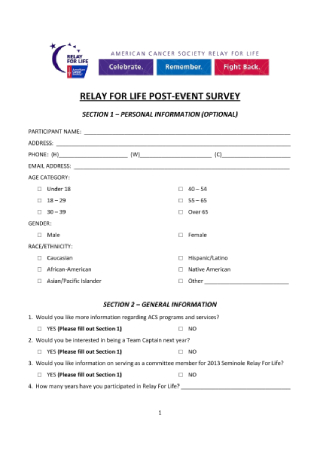
Charity Program Post-Event Survey
Gather valuable input from attendees of your charity event through a survey.
-
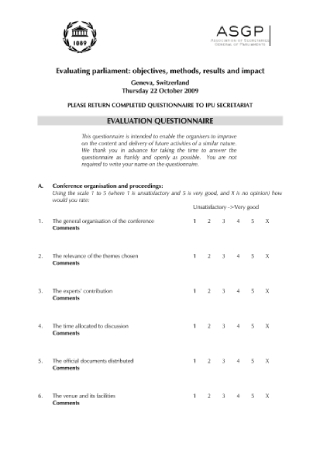
Conference Evaluation Survey Questionnaire
Understand the success of your conference by using a survey questionnaire.
-
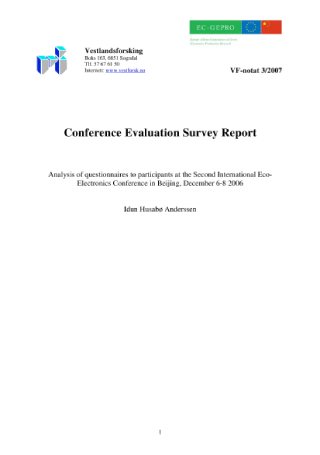
Conference Evaluation Survey Report
Analyze the findings of your evaluation survey with a written report.
-
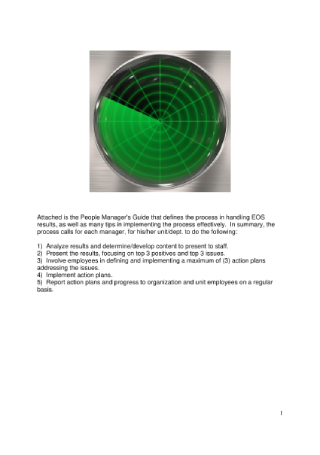
Employee Meeting Follow-Up Survey
Collect opinions from the members of your meeting using a follow-up survey.
-
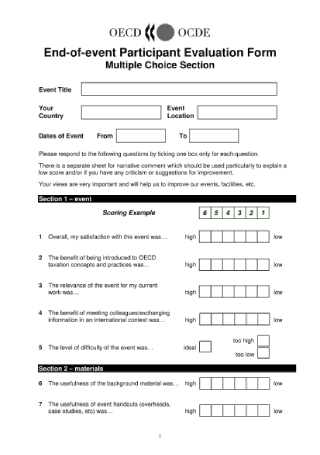
End-of-Event Participation Evaluation Survey Form
Maximize public participation for your next event by using a survey form for evaluation.
-
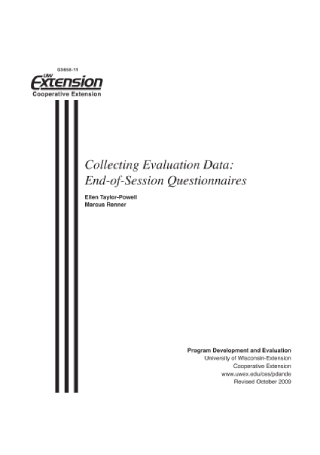
End-of-Session Survey Questionnaire
Conduct a survey at the end of every session using this questionnaire sample.
-
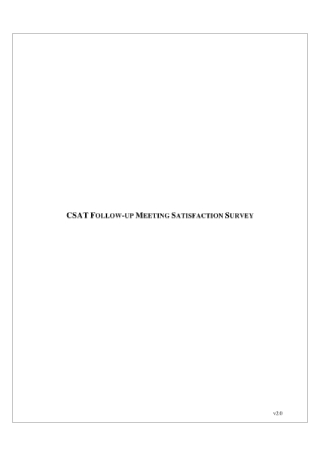
Follow-Up Meeting Satisfaction Survey
See whether attendees are satisfied with how the meeting transpired using a survey.
-

Industry Summit Post-Event Survey
Measure the success of your summit with the help of a post-event survey.
-
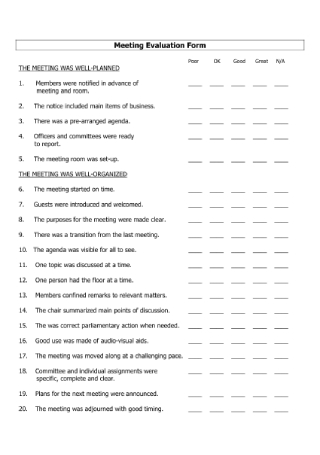
Meeting Evaluation Survey Form
Use a survey form to assess what attendees have grasped from your meeting.
-
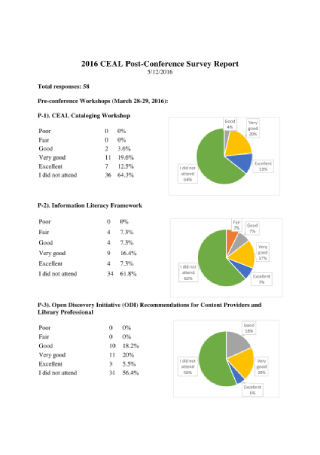
Post-Conference Survey Report
Summarize your post-conference survey in a detailed report.
-
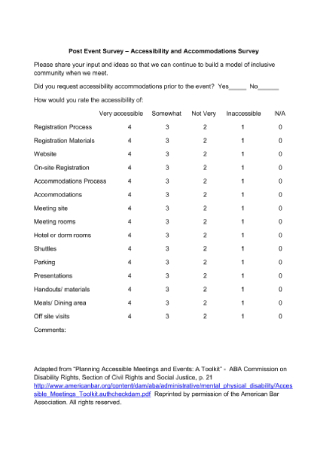
Post-Event Accessibility and Accommodations Survey
Fulfill the needs of attendees for future events by using a survey for further development.
-
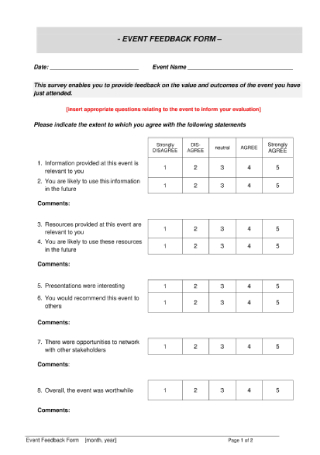
Post-Event Feedback Survey Form
Acquire meaningful feedback from attendees with the help of a survey form.
-
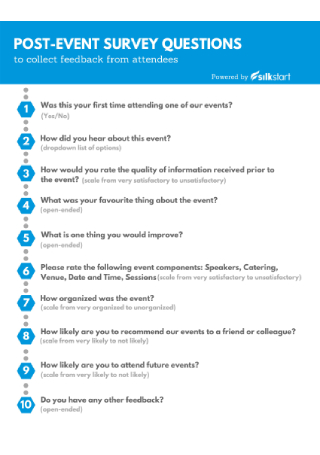
Post-Event Survey Questions
Ask these survey questions to see where you succeeded and what you can do better.
-
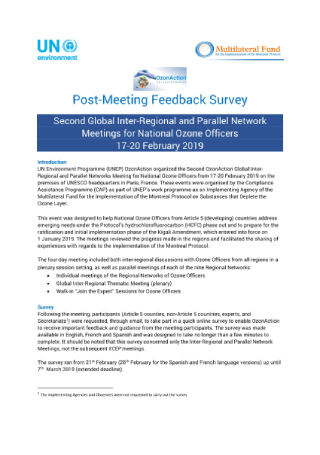
Post-Meeting Feedback Survey
Administer a survey to obtain feedback from attendees for the meeting you arranged.
-
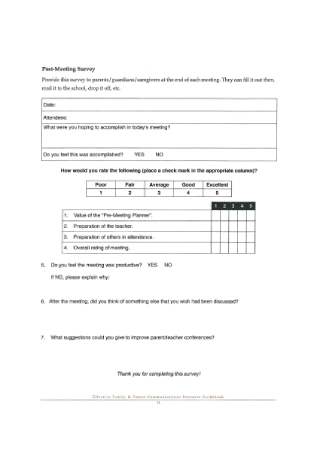
Post-Meeting Survey
Allow attendees to rate your meeting by carrying out a survey.
-
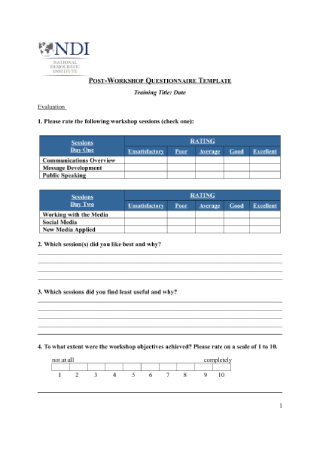
Post-Workshop Survey Questionnaire
Find out what people really thought about your workshop through a survey questionnaire.
-
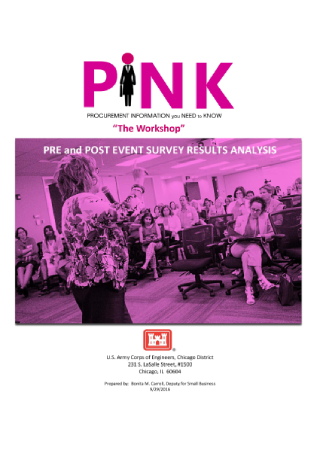
Pre- and Post-Event Survey Results Analysis
Compare pre- and post-event standpoints with a survey results analysis.
-
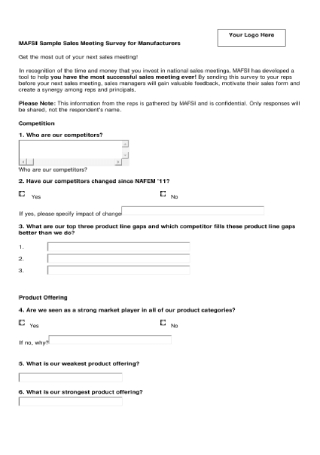
Sales Meeting Survey
Evaluate your sales performance by the end of each period with the help of a meeting survey.
-
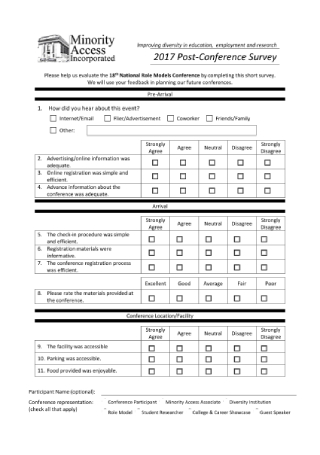
Simple Post-Conference Survey
Make better plans for future conferences by using a survey to gain feedback.
-
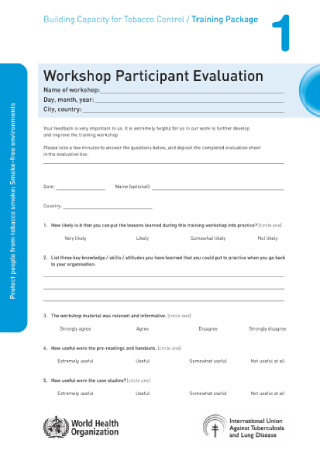
Workshop Participant Evaluation Survey
Stay connected with workshop participants by utilizing a survey for any reactions.
FREE Post-Meeting Survey s to Download
Importance of Post-Meeting Surveys (With 20+ Samples)
What Are Surveys?
Pros and Cons of Surveys
The Significance of Post-Meeting Surveys
What Are Surveys?
A survey is a research method designed to collect valuable data from a predefined sample of people. Here, respondents are given a voice to say their opinions about the matter at hand as openly and honestly as they possibly could. This information may be obtained via email, telephone, or in-person contact, depending on how the researcher plans to employ the questionnaire for the survey. Keep in mind that the data acquired from a group of individuals only speaks for a mere fraction of the population concerned. Unlike a census, surveys are used to gather information from only a portion of your target audience instead of the entire population being studied.
Pros and Cons of Surveys
Like any other research tool, surveys have their own share of advantages and disadvantages.
For instance, it’s easy to develop a survey, especially with the abundance of various survey software solutions available in the market. Online surveys, mobile surveys, and paper surveys all prove to be an effective way of obtaining information from a particular group of respondents. Not only are they relatively easy to administer, but they are also capable of collecting a broad range of data from a large number of people. It’s a quick way to get data from a class of respondents without spending too much time and energy in the process.
However, the reliability of survey data can sometimes be questionable due to a number of factors. Some respondents may not feel comfortable about being truthful with their response, nor do they want to present themselves in an unfavorable manner due to the answers they provided. Certain questions may even generate unclear data from respondents when interpreted differently from what the researcher had intended. These are risks that must be considered before you begin your survey.
The Significance of Post-Meeting Surveys
Following any kind of event, be it a business meeting or a training program, one of the first things to do is obtain feedback from attendees to know more about their current sentiments, needs, and expectations for future gatherings. This will help managers design strategies that aim to satisfy public demands for continuous improvement and success. This will also ensure a better turnout for your next meeting, granting participants an experience that’s worth their time and effort.
One of the main objectives of a post-meeting survey is to determine what organizers have been doing right and wrong. A reality check like this will help you work progressively toward better planning and delivery. Seeing whether the efforts you put into organizing the event meet a participant’s expectations can greatly contribute to the decisions you make for the coming meetings as well. The last thing you’d want to do is to invest your time and resources on something that your audience care the least about, which is why it’s best to get to know your market even more as you go along with your ventures.
Even with positive feedback, there’s always room for improvements. Criticisms might be difficult to take in, but they help shape your strategies by acknowledging the things you failed to notice. With that said, don’t think twice about preparing a survey for attendees to respond to after every meeting.
